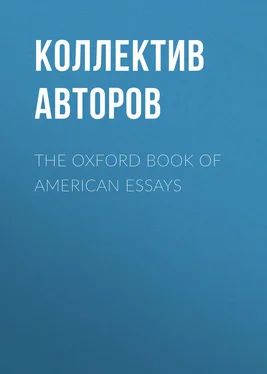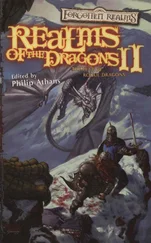Коллектив авторов - The Oxford Book of American Essays
Здесь есть возможность читать онлайн «Коллектив авторов - The Oxford Book of American Essays» — ознакомительный отрывок электронной книги совершенно бесплатно, а после прочтения отрывка купить полную версию. В некоторых случаях можно слушать аудио, скачать через торрент в формате fb2 и присутствует краткое содержание. Жанр: foreign_antique, foreign_prose, на английском языке. Описание произведения, (предисловие) а так же отзывы посетителей доступны на портале библиотеки ЛибКат.
- Название:The Oxford Book of American Essays
- Автор:
- Жанр:
- Год:неизвестен
- ISBN:нет данных
- Рейтинг книги:5 / 5. Голосов: 1
-
Избранное:Добавить в избранное
- Отзывы:
-
Ваша оценка:
- 100
- 1
- 2
- 3
- 4
- 5
The Oxford Book of American Essays: краткое содержание, описание и аннотация
Предлагаем к чтению аннотацию, описание, краткое содержание или предисловие (зависит от того, что написал сам автор книги «The Oxford Book of American Essays»). Если вы не нашли необходимую информацию о книге — напишите в комментариях, мы постараемся отыскать её.
The Oxford Book of American Essays — читать онлайн ознакомительный отрывок
Ниже представлен текст книги, разбитый по страницам. Система сохранения места последней прочитанной страницы, позволяет с удобством читать онлайн бесплатно книгу «The Oxford Book of American Essays», без необходимости каждый раз заново искать на чём Вы остановились. Поставьте закладку, и сможете в любой момент перейти на страницу, на которой закончили чтение.
Интервал:
Закладка:
Taken within his range of characters, the versatility of his playing is striking. He seems not the same being, now representing Richard, and, again, Hamlet; but the two characters alone appear before you, and as distinct individuals who had never known or heard of each other. So does he become the character he is to represent, that we have sometimes thought it a reason why he was not universally better liked here, in Richard; and that because the player did not make himself a little more visible, he must needs bear a share of our dislike of the cruel king. And this may be still more the case, as his construction of the character, whether right or wrong, creates in us an unmixed dislike of Richard, till the anguish of his mind makes him the object of pity; from which time, to the close, all allow that he plays the part better than anyone has done before him.
In his highest-wrought passion, when the limbs and muscles are alive and quivering, and his gestures hurried and vehement, nothing appears ranted or overacted; because he makes us feel, that, with all this, there is something still within him struggling for utterance. The very breaking and harshness of his voice, in these parts, help to this impression, and make up, in a good degree, for this defect, if it be a defect here.
Though he is on the very verge of truth in his passionate parts, he does not fall into extravagance; but runs along the dizzy edge of the roaring and beating sea, with feet as sure as we walk our parlors. We feel that he is safe, for some preternatural spirit upholds him as it hurries him onward; and while all is uptorn and tossing in the whirl of the passions, we see that there is a power and order over the whole.
A man has feelings sometimes which can only be breathed out; there is no utterance for them in words. I had hardly written this when the terrible "Ha!" with which Kean makes Lear hail Cornwall and Regan as they enter in the fourth scene of the second act, came to my mind. That cry seemed at the time to take me up and sweep me along in its wild swell. No description in the world could give a tolerably clear notion of it; – it must be formed, as well as it may be, from what is here said of its effect.
Kean’s playing is sometimes but the outbreaking of inarticulate sounds; – the throttled struggle of rage, and the choking of grief, – the broken laugh of extreme suffering, when the mind is ready to deliver itself over to an insane joy, – the utterance of over-full love, which cannot and would not speak in express words, and that of wildering grief, which blanks all the faculties of man.
No other player whom I have heard has attempted these, except now and then; and should anyone have made the trial in the various ways in which Kean gives them, probably he would have failed. Kean thrills us with them, as if they were wrung from him in his agony. They have not the appearance of study or artifice. The truth is, that the labor of a mind of his genius constitutes its existence and delight. It is not like the toil of ordinary men at their task-work. What shows effort in them comes from him with the freedom and force of nature.
Some object to the frequent use of such sounds, and to others they are quite shocking. But those who permit themselves to consider that there are really violent passions in man’s nature, and that they utter themselves a little differently from our ordinary feelings, understand and feel their language as they speak to us in Kean. Probably no actor has conceived passion with the intenseness and life that he does. It seems to enter into him and possess him, as evil spirits possessed men of old. It is curious to observe how some, who have sat very contentedly, year after year, and called the face-making, which they have seen, expression, and the stage-stride, dignity, and the noisy declamation, and all the rhodomontade of acting, energy and passion, complain that Kean is apt to be extravagant; when in truth he seems to be little more than a simple personation of the feeling or passion to be expressed at the time.
It has been so common a saying, that Lear is the most difficult of characters to personate, that we had taken it for granted no man could play it so as to satisfy us. Perhaps it is the hardest to represent. Yet the part which has generally been supposed the most difficult, the insanity of Lear, is scarcely more so than that of the choleric old king. Inefficient rage is almost always ridiculous; and an old man, with a broken-down body and a mind falling in pieces from the violence of its uncontrolled passions, is in constant danger of exciting, along with our pity, a feeling of contempt. It is a chance matter to which we may be most moved. And this it is which makes the opening of Lear so difficult.
We may as well notice here the objection which some make to the abrupt violence with which Kean begins in Lear. If this be a fault, it is Shakspeare, and not Kean, who is to blame; for, no doubt, he has conceived it according to his author. Perhaps, however, the mistake lies in this case, where it does in most others, with those who put themselves into the seat of judgment to pass upon great men.
In most instances, Shakspeare has given us the gradual growth of a passion, with such little accompaniments as agree with it, and go to make up the whole man. In Lear, his object being to represent the beginning and course of insanity, he has properly enough gone but a little back of it, and introduced to us an old man of good feelings enough, but one who had lived without any true principle of conduct, and whose unruled passions had grown strong with age, and were ready, upon a disappointment, to make shipwreck of an intellect never strong. To bring this about, he begins with an abruptness rather unusual; and the old king rushes in before us, with his passions at their height, and tearing him like fiends.
Kean gives this as soon as the fitting occasion offers itself. Had he put more of melancholy and depression and less of rage into the character, we should have been much puzzled at his so suddenly going mad. It would have required the change to have been slower; and besides, his insanity must have been of another kind. It must have been monotonous and complaining, instead of continually varying; at one time full of grief, at another playful, and then wild as the winds that roared about him, and fiery and sharp as the lightning that shot by him. The truth with which he conceived this was not finer than his execution of it. Not for a moment, in his utmost violence, did he suffer the imbecility of the old man’s anger to touch upon the ludicrous, when nothing but the justest conception and feeling of the character could have saved him from it.
It has been said that Lear is a study for one who would make himself acquainted with the workings of an insane mind. And it is hardly less true, that the acting of Kean was an embodying of these workings. His eye, when his senses are first forsaking him, giving an inquiring look at what he saw, as if all before him was undergoing a strange and bewildering change which confused his brain, – the wandering, lost motions of his hands, which seemed feeling for something familiar to them, on which they might take hold and be assured of a safe reality, – the under monotone of his voice, as if he was questioning his own being, and what surrounded him, – the continuous, but slight, oscillating motion of the body, – all these expressed, with fearful truth, the bewildered state of a mind fast unsettling, and making vain and weak efforts to find its way back to its wonted reason. There was a childish, feeble gladness in the eye, and a half-piteous smile about the mouth at times, which one could scarce look upon without tears. As the derangement increased upon him, his eye lost its notice of objects about him, wandering over things as if he saw them not, and fastening upon the creatures of his crazed brain. The helpless and delighted fondness with which he clings to Edgar, as an insane brother, is another instance of the justness of Kean’s conceptions. Nor does he lose the air of insanity, even in the fine moralizing parts, and where he inveighs against the corruptions of the world. There is a madness even in his reason.
Читать дальшеИнтервал:
Закладка:
Похожие книги на «The Oxford Book of American Essays»
Представляем Вашему вниманию похожие книги на «The Oxford Book of American Essays» списком для выбора. Мы отобрали схожую по названию и смыслу литературу в надежде предоставить читателям больше вариантов отыскать новые, интересные, ещё непрочитанные произведения.
Обсуждение, отзывы о книге «The Oxford Book of American Essays» и просто собственные мнения читателей. Оставьте ваши комментарии, напишите, что Вы думаете о произведении, его смысле или главных героях. Укажите что конкретно понравилось, а что нет, и почему Вы так считаете.












